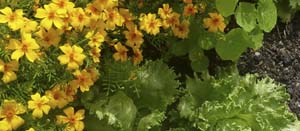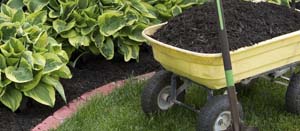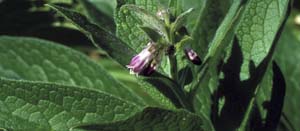SEARCH RESULTS > ARTICLES > environment
Creating a thriving and productive garden involves more than just selecting the right plants and providing adequate water and sunlight. One often-overlooked strategy that can significantly enhance your garden's health and yield is companion planting. This ancient practice involves strategically planting different crops together to maximize their benefits and minimize potential issues. Learn More
In the realm of sustainable gardening, permaculture stands out as a holistic and eco-friendly approach that harmonizes with nature rather than imposing on it. Creating a permaculture garden involves thoughtful planning, observation, and a commitment to working with the natural environment. In this step-by-step guide, we'll explore how to design a permaculture garden that not only yields bountiful harvests but also nurtures the ecosystem. Learn More
In the realm of sustainable living, permaculture has emerged as a guiding philosophy that transcends mere gardening. It is a holistic approach that encompasses ecological design, regenerative agriculture, and a harmonious coexistence with nature. In this article, we will delve into the essence of permaculture principles, exploring how they can be applied to create thriving and sustainable gardens. More importantly, we'll uncover the joy and fun that permaculture brings to the world of cultivation. Learn More
A lush, vibrant garden begins with healthy soil. No matter how green your thumb may be, the quality of your soil plays a pivotal role in the success of your garden. To create a thriving garden, you need to build a solid foundation, and that foundation is healthy soil. One of the most effective ways to improve and maintain soil health is through composting. In this article, we'll explore the importance of soil health and delve into the world of composting, showing you how to transform your garden's foundation into a haven for your plant Learn More
Attracting more animals to your garden can be a rewarding and enjoyable experience for several reasons. Wildlife can contribute to a healthy and thriving ecosystem in your garden, help with pest control, and provide opportunities for learning and appreciation of nature. Here are some steps to attract more animals to your garden and why it's beneficial. Learn More
Regulating the pH in your garden using organic methods is a sustainable and environmentally friendly way to ensure healthy plant growth. Here are several organic methods to adjust and maintain the pH in your garden: Learn More
Companion planting is a gardening practice where you strategically plant different types of crops near each other to take advantage of the potential benefits they can offer each other. This can include improving growth, deterring pests, enhancing flavor, and maximizing space. Here's why and how you can use companion planting in your garden. Learn More
The microbiome in your garden soil refers to the diverse community of microorganisms that inhabit the soil. These microorganisms play a crucial role in maintaining soil health, nutrient cycling, and plant growth. The soil microbiome consists of various organisms, including bacteria, fungi, archaea, viruses, and microfauna (such as nematodes and protozoa). Here are some key points about the microbiome in garden soil. Learn More







